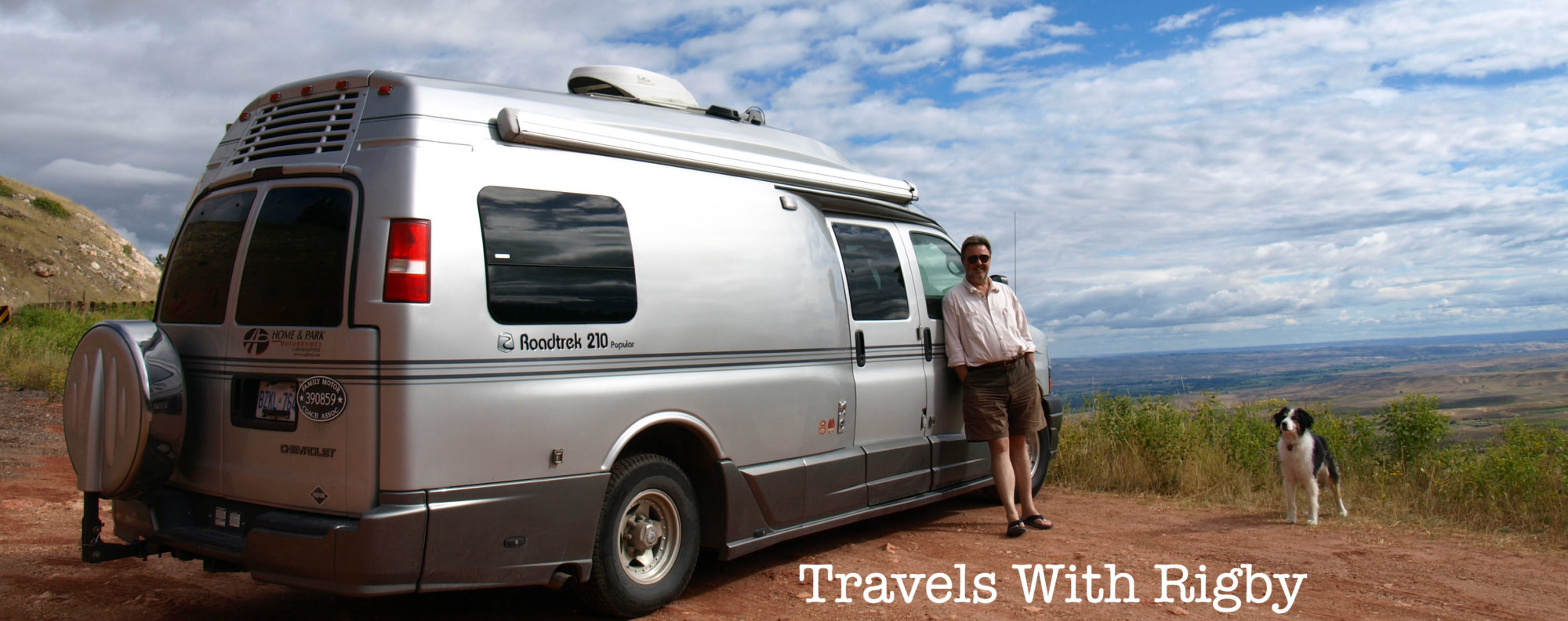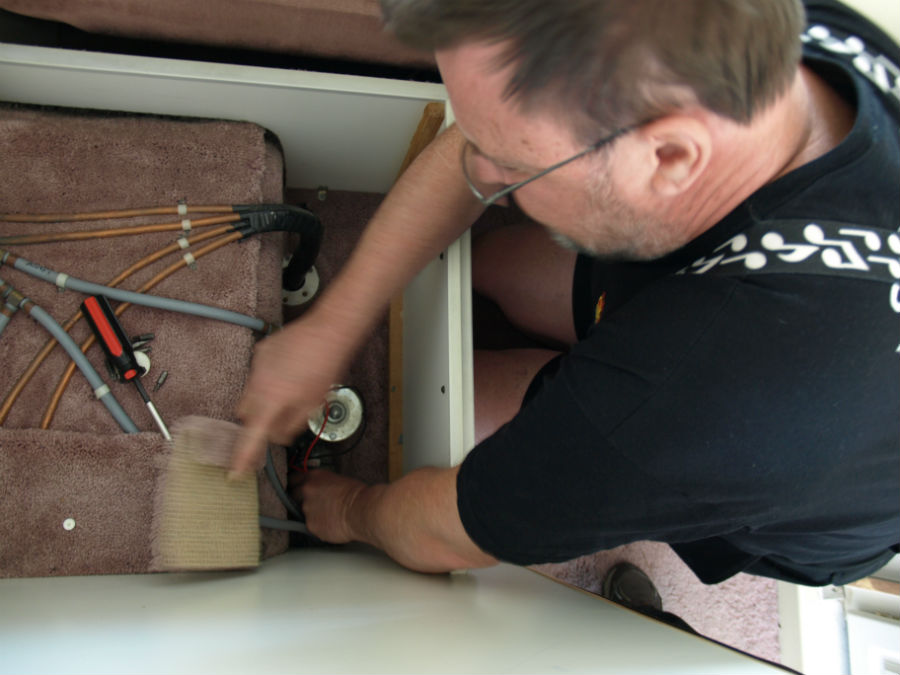Our first camper van was a 1996 Class B van. It was older but served us well – the engines are built to be durable. Now we’ve updated to a beautiful 2006 Roadtrek 210 that we love! No matter what vehicle, prepping for a long time on the road is especially important.
We start early. A month or so before we’re rolling down the driveway we make an appointment for a front-to-back once-over at our local mechanic. Minor issues can turn into major headaches when you are in the middle of nowhere. How long has that Check Engine light been on? When’s the last time you had the oil changed? Do you remember that rattle from last year? You don’t want to be dragging these unanswered questions along.
Getting the RV in to the mechanic early means that should any parts need to be special ordered, we aren’t scrambling at the last minute (yes, it happens). We make sure all the fluids are topped up, the batteries are working, the electrical system is causing no problems and that there are no drips from the plumbing or holding tanks. Here’s what happens:
- Check and fill all the fluids.
- Test the battery levels (both the engine and leisure battery).
- Check all tire pressures (including the spare).
- Check the electrical system – lights, inverter, etc.
- Check the pump – to the sink, the toilet, outside shower, etc.
- Test the furnace, air conditioner, microwave, etc.
- Test the fridge on all settings (we have a three-way fridge that runs on electricity, 12V and propane and we test it on all settings).
Once the mechanics have been attended to, we do a top-to-bottom of the inside of the van:
- Wiping down all the shelves and cupboards.
- WD40 on any squeaky hinges.
- Make sure the mattress and linens are clean (we use a 4-inch thick memory foam on top of the van bed and love it so much you’d have to tear it from our hands!).
- Wipe down the dashboard, cup holder area, wash the linoleum floors and vacuum the carpeting.
- Clean out the glove box and then make sure everything we need is repacked there.
- Make sure the maps we need are packed and that the GPS is working.
Looking for a printable version of our checklist? RV prep checklist
We’re big fans of CAA (a partner of AAA in the U.S.) but this year have discovered Explorer RV Club roadside assistance. For a relatively modest amount we have annual coverage that gives us unlimited towing services to the nearest repair facility and unlimited 24/7 roadside assistance (empty gas tank, flat tire, locked doors, dead battery). Our plan covers our home car and our 2006 Roadreak 210. Just one “help us!” call pays for the annual membership.
Still, things do go wrong on the road (hopefully nothing major). If it’s too big a job for our expertise, like replacing the sewer line, we sourced a local repair shop and gladly handed over the keys to get the – ahem – “fragrant” job done. Craig has tackled minor jobs – like replacing the water pump – with no problems at all. The wait to squeeze us into the service schedule at a rural Texas RV dealer was two days (not happening) so Craig completed the installation of a new pump in about an hour. It turned out the dealer even lent us the tools to get the job done!

